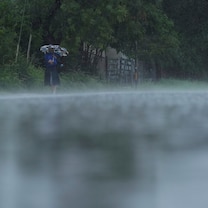Lack of Deep Sleep May Up Diabetes Risk
Poor sleep may contribute to diabetes risk, new research finds.
Dec. 31, 2007— -- Sleep loses out a lot -- to finals during college, to caring for new babies, to New Year's parties. But when it comes to your weight and diabetes risk, a good night's sleep might be anything but expendable.
A new study shows that after three nights of poor sleep, healthy people can lose their ability to process sugar by 23 percent -- a problem that in the long-term could lead to weight gain and diabetes.
Comparatively speaking, those in the experiment who were deprived of good sleep experienced a drop in metabolism similar to what would have been seen had they gained between 17 and 28 pounds.
The study, published Monday in the Proceedings of the National Academy of Science, suggests a possible explanation for the high number of diabetics who have sleep disorders.
The new take differs from conventional wisdom on the connection; doctors usually think of diabetes causing sleep problems, not the other way around.
"Here's sort of the chicken-and-the-egg syndrome," said Dr. Martin Abrahamson, medical director of the Joslin Diabetes Center in Boston. "This study is the chicken side, not the egg side."
The egg side -- which happens to be the conventional approach -- suggests diabetics are more likely to be obese, and therefore are more likely to develop obesity-induced sleep apnea. In this condition, a person's extra weight bears down on breathing airways, causing people to get short of breath during deep slow-wave sleep. Instead of waking up, the person shifts to a lighter stage of sleep.
Researchers at the University of Chicago wondered whether sleep disorders like sleep apnea could be partially to blame for metabolism problems instead of just being an unwanted side effect.
To find out, researchers monitored sleeping volunteers' brain waves. When they reached slow-wave sleep, the researchers blared sounds loud enough to rouse the volunteers into a lighter sleep stage, but not loud enough to wake them up -- a forced sleep apnea of sorts.



